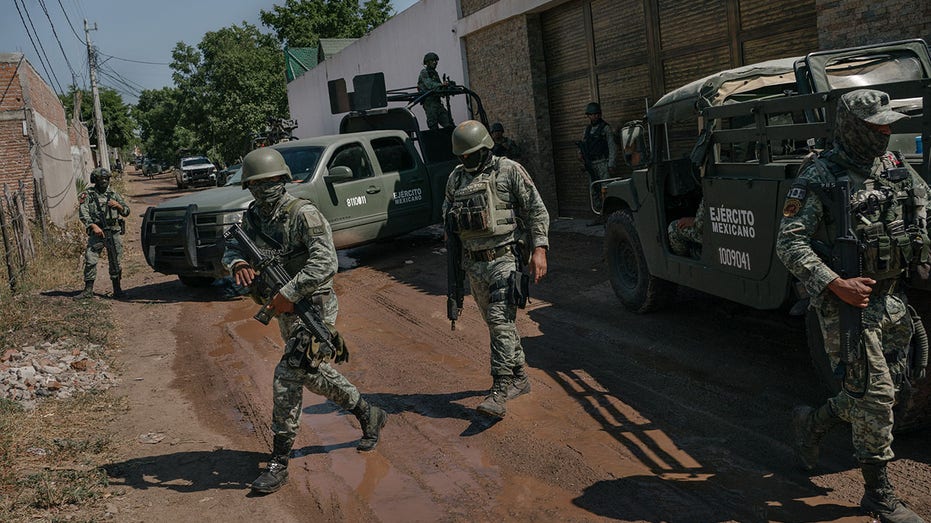Trump Admin Imposes Sanctions on El Chapo's Children and Los Chapitos for Fentanyl Trafficking
U.S. Treasury sanctions El Chapo’s sons and Los Chapitos amid cartel-linked killing of Marine veteran, targeting Sinaloa cartel finances.

The U.S. government has tightened its crackdown on the notorious Sinaloa cartel, with new sanctions announced against the children of Joaquín "El Chapo" Guzmán Loera and their powerful criminal network known as Los Chapitos. The Treasury Department’s Office of Foreign Assets Control revealed measures targeting Los Chapitos, accusing the faction of controlling major drug laboratories that are responsible for flooding the United States with fentanyl-laced counterfeit pills.
According to officials, Archivaldo Iván Guzmán Salazar and Jesús Alfredo Guzmán Salazar—two of El Chapo’s sons—are at the helm of operations facilitating drug trafficking, extortion, kidnapping, and money laundering. “Los Chapitos is a powerful, hyperviolent faction of the Sinaloa cartel at the forefront of fentanyl trafficking in the United States,” highlighted Treasury Secretary Scott Bessent on Monday. He emphasized the administration’s commitment to eradicating drug cartels and dismantling violent leadership figures within such organizations.
This latest round of sanctions comes amid heightened scrutiny following the tragic killing of Nicholas Douglas Quets, a 31-year-old U.S. Marine veteran, who was gunned down by suspected Sinaloa cartel members in Sonora, Mexico, on October 18, 2024. Quets, who had worked on water reclamation projects in Arizona, was ambushed while traveling along the Caborca-Altar Highway, just south of the U.S. border. His murder, described by his family as a “deliberate act of terror against a known American citizen,” has further galvanized calls for decisive action against cartel violence.
In a statement, Nicholas Quets’ father, Doug, praised the administration for what he called an “unwavering” pursuit of justice. “Nicholas Quets was an innocent American and proud U.S. Marine veteran whose bright future was stolen when he was ambushed by a heavily armed cell of the Sinaloa cartel,” he said. Doug Quets described the Treasury Department’s move to designate the Sinaloa cartel as a foreign terrorist organization as a “vital first step in honoring Nicholas’ memory and protecting other Americans from suffering similar tragedies.”
The Treasury Department’s latest actions also extend to a regional alliance of Los Chapitos associates and businesses based in Mazatlán, Sinaloa. These entities are accused of a spectrum of criminal activity, including drug trafficking and financial crimes. Officials say this comprehensive approach, which includes coordination with the U.S. Drug Enforcement Administration, is designed to “maximize all available tools to stop the fentanyl crisis and help save lives.”
As the administration intensifies efforts to curb cartel power, families like the Quetses are looking to these new measures as crucial advances in the fight against transnational organized crime. “Disrupting [cartel] ability to move money, launder profits and bribe officials is essential to dismantling this criminal empire,” Doug Quets asserted, echoing the sentiment that tackling the financial networks underlying cartel operations is key to ensuring greater security for both Americans and communities affected by cartel violence.




